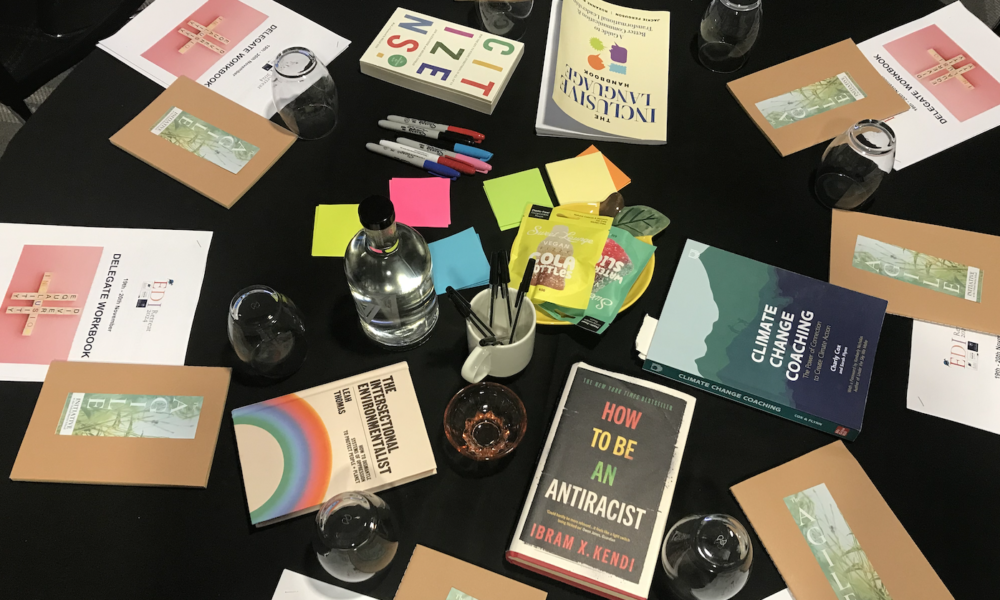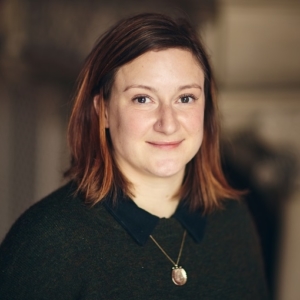Space to think: reflections from Agile’s EDI Retreat
Recent News
- From beans to minerals: the new projects getting science into policy
- Hunger on our doorstep
- Place-based working to meet national well-being and sustainability goals

Agile hosted our first event focused on equality, diversity and inclusion (EDI) in November 2024. The aim of the EDI Retreat was to provide a welcoming, supportive space to discuss EDI in environmental science research. The event was designed for delegates from Changing the Environment, our parent programme. In this blog, we hear from Agile’s EDI Officer Steph Perrin about the event.
From the outset, our top priority was to develop content that was relevant to research and professional service staff from four universities with varied levels of knowledge about EDI. This task was a bit intimidating at the start! However, in EDI work we know that the best way to find a solution is to be led by the people you’re working with. In collaboration with our event coordinators Elma Glasgow, Jo Twiselton, and Clare Lucas, we surveyed delegates about the potential benefits, known challenges, and priorities for integrating EDI in their research and daily work. Inspired by recent accessibility training and Oxford’s EDI Community of Practice Training Conference, the survey also asked about learning styles and accommodation requests so that we could do our best to support full participation from the delegates. The survey helped us to identify common ground and specific interests amongst the delegates and we developed an agenda that aimed to shift from theory to action over 1.5 days.
From Nov 19 to Nov 20, 2024 the EDI Retreat hosted 15 delegates from the four Changing the Environment programmes at the Universities of Cambridge, Exeter, Glasgow and Oxford. The agenda covered topics like bias, leading through change, and difficult conversations. We also explored research-specific areas like embedding and applying EDI in research projects and engaging communities with finding solutions. Importantly, our last session provided time for action planning so that the delegates could leave with something specific to take forward. Our lively and thought-provoking discussions produced a few key reflections:
- Advancement of EDI needs to be led from the bottom up and the top down. It is important for senior leaders to be informed about and prioritise inclusion so that other members of a team are provided with a supportive, safe environment that offers room to fail. Research and professional staff can lead within the scope of their role and influence those with formal leadership positions.
- Early career researchers, especially post-graduate research assistants (not post-docs), seem to be particularly vulnerable to falling through the gaps of university support. There is an opportunity to further engage with this group and improve research and workplace culture within Agile Sprints and the other Changing the Environment programmes.
- It was valuable to have dedicated time and space to discuss EDI away from day-to-day responsibilities. Often work in this area can be reactive and hurried. Having time to think and talk through frustrations and challenges led to productive discussions and ideas about how to act in the future.
- The Changing the Environment teams all agreed that we have valuable learning and feedback to share about what does and does not work for funding EDI within large research programmes. We are eager to continue this discussion in the remaining years of our work together.
A benefit of our mixed group was having a range of perspectives from early career researchers to senior leaders to professional staff. We were able to face up to complex issues that can be daunting in other settings. The varied experience and roles represented in the room did surface some differing opinions and priorities. However, that tension was largely productive thanks to respectful facilitation, open-minded discussion, and willingness to shift the agenda when necessary.
Throughout the event, we encouraged each other to be empowered as individual leaders and members of emerging coalitions. By the end of the two days, our group had produced new connections across the Changing the Environment programmes, identified actions to continue advancing EDI and generated ideas for new initiatives. The Agile team has been reviewing recommendations identified at the EDI Retreat that we are eager to implement within our programme and to discuss with colleagues across the University of Oxford.
The EDI Retreat was a useful reminder about the benefits of slowing down, focusing, and connecting in person. My hope is that the retreat is just the start. I invite our delegates, the other Changing the Environment programmes, and members of the Oxford community to take our lessons and run with them for bigger and better equality, diversity and inclusion events in the future.



